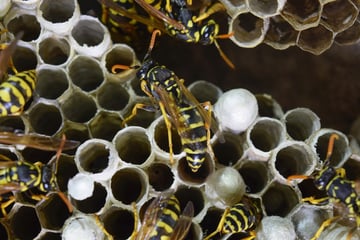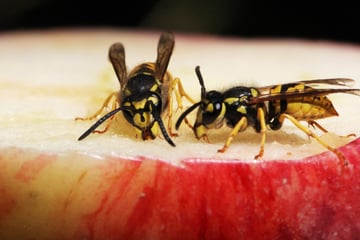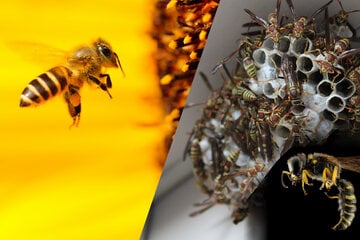Wasp sting symptoms and treatments: Everything you need to know
There are few things more painful than a wasp sting, so it's good to be prepared. Now that it's summer, it's time to take a look at how to treat wasp stings and what symptoms you can expect when you are stung.
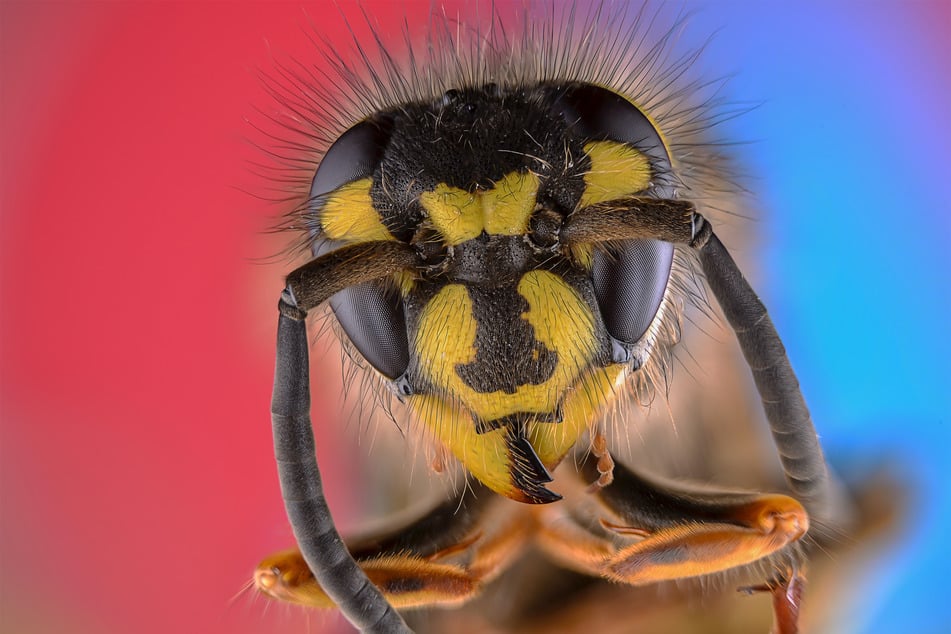
There's more to a wasp sting than first meets the eye. The pain can be delayed until multiple days after the attack, and they can even be dangerous to certain people. With summer hitting us with heat like we've never felt before, it's best to be safe when out about enjoying the sun. To do so, there are a few things that you need to know about wasp stings.
In this guide, we're going to take you through a variety of wasp sting treatments. What are the main wasp sting symptoms that you can expect, how long do they last, and what else do you need to know about these nasty animals? Let's find out!
Why do wasps sting you?
Wasps have sharp needle-like retractable stingers that are filled with venom, used both as a defensive and offensive weapon. While the predominant reason for this nasty, sharp apparatus is to simply subdue and kill their prey so that the bodies can be feasted on by the wasp (and sometimes brought back to the nest), they will also use their stingers to protect themselves and their colony.
You see, unlike bees – which will die after using their stinger – there is no real downside to a wasp stinging you. If you present as a threat, wasps can use their venomous sting as a genuine weapon instead of as a last resort. All this being said, though, wasps are not vindictive. Rather, they are protective, and want to keep their nests and queens as safe as possible.
Ultimately, if you want to avoid wasps from stinging you, you want to keep them from building nests nearby. Once a nest is built, it's hard to get rid of without incurring the wrath of angry and aggressive wasps.
How long do wasp stings last?
The length of time that a wasp sting takes to go away depends entirely on the person who has been stung. Some people will have allergic reactions to the sting, which can be both mild and severe, and to those people the pain from the sting will last a lot longer and can also cause serious swelling and a variety of other symptoms (which we detail below).
Most serious wasp stings are worth getting checked out at the doctor. Remember, when they sting you, they inject venom, so it's best to be safe. This goes double if you suffer from anaphylaxis, making it hard to breathe. In this case, you should seek immediate medical attention at your nearest emergency room or even call an ambulance if it's dire, as anaphylactic shock can be deadly.
To some, reaction to a wasp sting will be a mild, if somewhat painful, inconvenience. These people can expect their sting to have generally calmed down within three or four days, while more serious cases can last weeks.
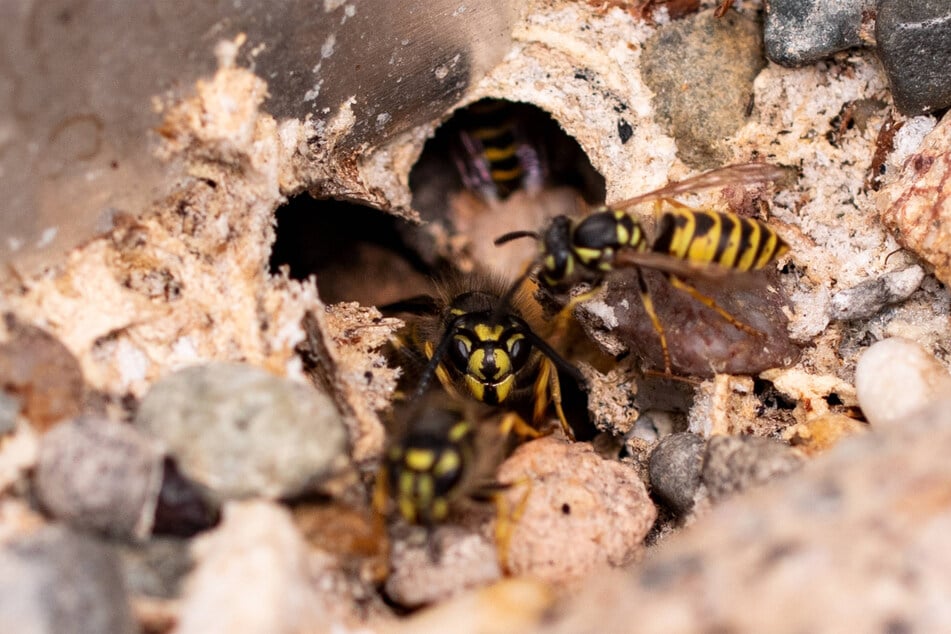
Wasp sting symptoms
There are many potential symptoms that can be experienced after a wasp sting. Many symptoms may seem severe, but in all likelihood, you will only experience the milder ones – so try not to worry too much if you have been stung.
Here are the most common symptoms of a wasp sting:
- Severe pain in the area of the sting
- Burning sensation
- Increased swelling around the puncture
- Redness around the puncture
- Severe itchiness
- Hives appearing around the sting or even across your body
- In more serious cases:
- Difficulty breathing
- Serious and severe swelling of arms, hands, feet, etc
- Coughing
- Light-headedness
- Fever
- Dizziness
This is not a complete list of symptoms, so remember to monitor whether anything odd is happening after a sting.
Please be safe: Some people can have very serious reactions to wasp stings. It is a huge problem and one that we must all be wary of. If you have been stung and are experiencing increasingly bad symptoms, go to the hospital as soon as you can.
What does a wasp sting look like?
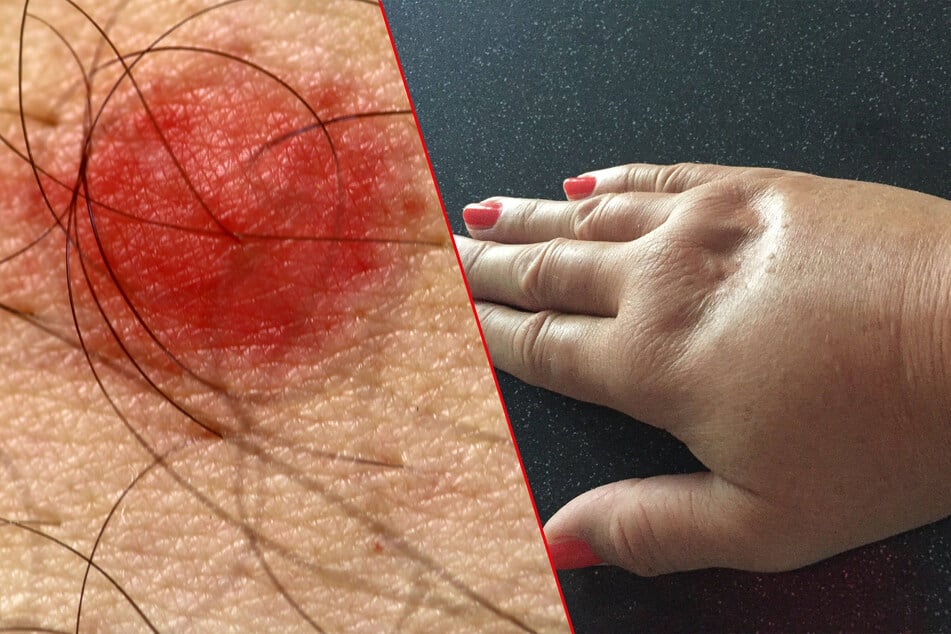
Most wasp stings will manifest themselves almost identically to a bee sting. You will have a large round red mark on your skin that will likely swell up a bit, appearing as a raised lump. It is likely that you will be able to see the puncture marks where you got stung.
Make sure that this is sterilized quickly, to avoid infections.
Wasp sting swelling
To some, though, a wasp sting is more serious. For these people, it is not uncommon that the area around the sting will swell up like a balloon. This doesn't just relate to the immediate area, as swelling can occur across an entire area of someone's body. For example, their legs, hands, or arms.
Severe swelling is a sign of serious illness and a reaction that needs to be addressed immediately. If you find that the appendage where you have been stung is swelling up aggressively, you need to go and get it checked out by a medical professional immediately.
Why do wasp stings hurt?
If you've ever been stung by a wasp, you may have noticed that their stings hurt a lot more than stings from bees or other insects like fire ants. This is due to the venom that they inject when they sting you, which causes the various blood vessels around the puncture to contract. This reaction sends increasing pain signals to your brain.
All the while, the venom itself has released a variety of different chemicals and cells into the wound, many of which will start to attack the body. In response to this, our bodies release a flood of cells which then cause the redness and swelling as they try to fight off the invaders. One of the chemicals released by our body is, of course, histamine.
This is what causes the allergic reaction, resulting in symptoms like coughing, itching, and difficulty breathing. This is also what can lead to anaphylactic shock in extreme cases. All-in-all, it causes a variety of symptoms, none of which are pleasant.
To summarize, wasp stings hurt so much both because of the venomous chemicals that get released (and due to the actual puncture that has been made), and because of your body's various physiological responses.

Wasp sting treatment: What to do and how to treat a wasp sting
There are a number of things that you can do to reduce the swelling and the pain when you get stung by a wasp. While these methods won't alleviate every single symptom (sorry, guys, it's still going to hurt), they will help speed up the recovery and keep you from getting too uncomfortable.
Here's how to treat a wasp sting
Step 1: Check for the stinger. If the wasp has left a stinger inside you, you want to gently remove it with the blunt edge of a knife, by rubbing over it. However, because wasps have retractable stingers, it's unlikely that there will be a stinger to remove, as they don't break off after stinging.
Step 2: Wash the sting itself thoroughly with soap and water, being mindful not to irritate it too much by rubbing on it aggressively.
Step 3: Cool it down using an ice pack. This will reduce the histamine response and therefore slow down and lessen the swelling. Also try to keep the sting elevated if at all possible.
Step 4: Get some kind of antihistamine paste, or something to reduce the pain and itching, from your pharmacist.
Step 5: In the meantime, until you can get something proper for it, try using a home remedy. Baking soda and water, mixed together like a paste, is a good start, as are wet teabags.
Step 6: Watch and observe the sting, taking note of any potentially worrying symptoms. If any do arise, visit the doctor or emergency room immediately.
Important: This is not a definitive guide to taking care of wasp stings. If you are concerned, call your doctor or a pharmacist and get their advice. We are not doctors here and our advice should not be treated as gospel.
What to do for a wasp sting if still swelling after 48 hours
Severe swelling should always be taken seriously. If your entire arm is swelling up, you should not wait 48 hours before seeking medical attention. Instead, you should go immediately to the hospital. There, they will be able to check you and make sure everything is OK.
On the flip side, it is normal for a wasp sting to still be symptomatic after only a few days. If your sting is still a bit red, a bit swollen, and a bit itchy or painful after 48 hours, try not to worry too much. Keep an eye on it, of course, but it's basically just a waiting game.
So, to summarize again: If your wasp sting is minor, a little bit red and swollen, and maybe a bit itchy, don't worry about it after 48 hours. Alternatively, if you have severe swelling and are seriously symptomatic, you should go immediately to the hospital.
Are wasp stings dangerous?
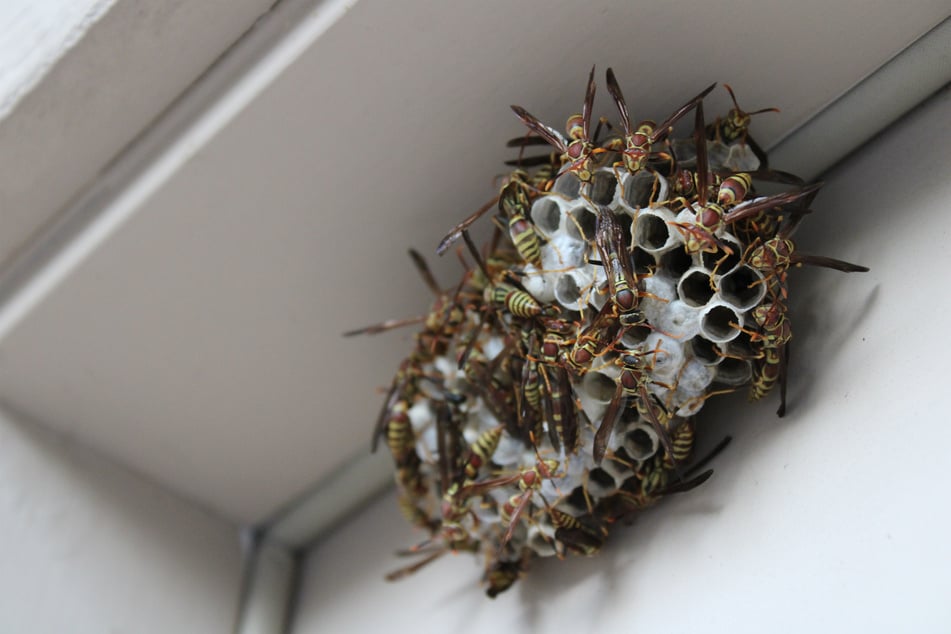
As previously mentioned, for the most part, wasp stings will be painful but don't pose any serious permanent danger to you or your body. Sure, their stings hurt like crazy, but they're not going to severely harm or kill you. Of course, this doesn't necessarily apply in all situations.
There are generally two scenarios in which a wasp sting is dangerous. The first is when you disturb a nest and an entire hive of wasps attacks you. If you are stung more than once or twice, it is best to go to the hospital. Anaphylaxis is the other risk, and urgent medical attention will be required as it can be fatal.
How many times can a wasp sting you?
While not nearly as strong and resilient as your average hornet, wasps can sting you an indefinite number of times. There is no set number, though it is unlikely that it will sting you a ton of times unless it feels trapped, with no way of escape, or you attack its nest.
Wasp stings are profoundly painful, and these buzzing insects can get pretty aggressive when they feel threatened. If you remember to stay calm around wasps, you should have nothing to worry about.
Cover photo: unsplash/v2osk
